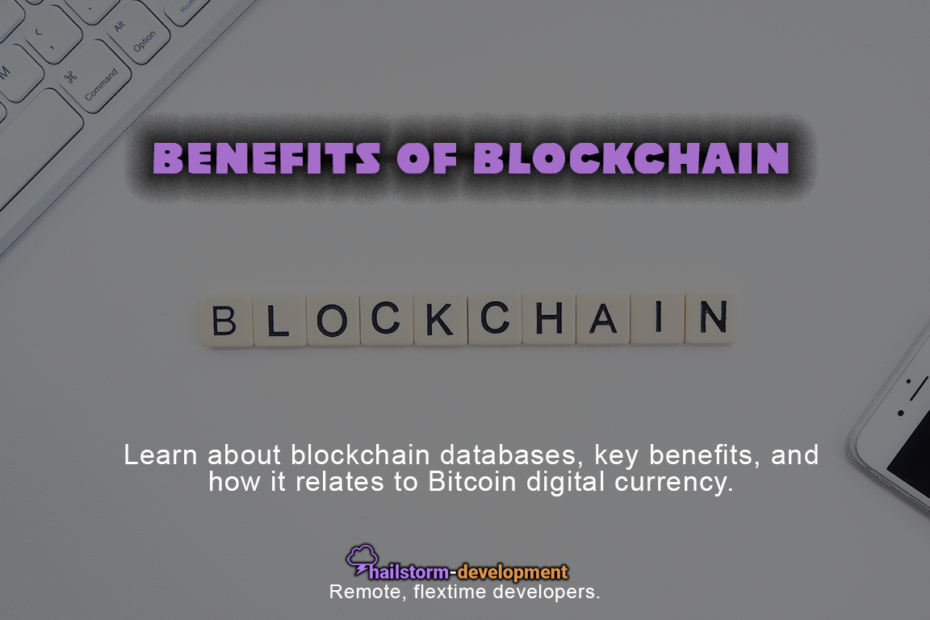What is Blockchain?
Blockchain technology rose to prominence in 2008 when Bitcoin became available to the public. IBM defines blockchain as a, “shared, immutable ledger that facilitates the process of recording transactions and tracking assets in a business network.” Now, if you’re unfamiliar with what an asset is, tangible or intangible, think of it as virtually anything of value.
Benefits of Blockchain
The benefits of blockchain for information technology aren’t all limited to cryptocurrency. Blockchain can provide greater transparency, increased efficiency, better security, and improved traceability.
Transparency
As can be seen publicly, blockchain’s transaction ledger is open for viewing. Moreover, this holds the business to act with integrity to its community and customers.
Better Security
With blockchain, each transaction is encrypted and linked to the previous transaction. It’s formed by a string of numbers and it’s impossible to alter once formed.
More Efficient
In short, blockchain allows faster transactions by utilizing P2P cross-boarder transfers. For instance, property management is more efficient with records and smart contracts.
Blockchain FAQ
With regards to the IBM Blockchain Platform, here are some of the top FAQs.
In the first place, bitcoin is an unregulated digital currency. Furthermore, bitcoin uses blockchain technology as its transaction leger.
Coupled with Hyperledger, the IBM Blockchain Platform solution can turn any developer into a blockchain developer.
First, smart contracts automatically execute transactions and record pertinent information to the ledger. Next, these contracts eliminate paperwork and help save time and money.
Usually, blockchain enables business to rethink how they do business. In regards to the diamond industry, this can include high-resolution photos, immutable payment records, and certificates of authenticity.
Well, almost. Currently, the IBM Blockchain Platform software can be deployed on Red Hat® OpenShift®, Red Hat’s state-of-the-art enterprise Kubernetes platform. In short, it boasts more flexibility when choosing where to deploy.
Key Takeaways
- Blockchain is a type of database.
- Data is stored in blocks that are chained together.
- Decentralized blockchains are immutable, which means transactions are permanently recorded and visible to anyone.
In Conclusion
Ultimately, whether your business decides to implement blockchain in your industry or not, you are bound to encounter it at some point. For example, the faster and more accurate the data used by your business, the better. Lastly, not only can a blockchain network track orders, payments, accounts, and more, but it gives you greater confidence in your transactions.
Resources & Further Reading
Conway, L. (2020, November 18). Blockchain Explained. Retrieved December 31, 2020, from https://www.investopedia.com/terms/b/blockchain.asp
Koksal, I. (2019, October 23). The Benefits Of Applying Blockchain Technology In Any Industry. Retrieved December 31, 2020, from https://www.forbes.com/sites/ilkerkoksal/2019/10/23/the-benefits-of-applying-blockchain-technology-in-any-industry/?sh=18c9a0ad49a5
Iansiti, M., & Lakhani, K. (2019, August 21). The Truth About Blockchain. Retrieved December 31, 2020, from https://hbr.org/2017/01/the-truth-about-blockchain
What is Blockchain Technology? – IBM Blockchain. (2020, November 26). Retrieved December 31, 2020, from https://www.ibm.com/blockchain/what-is-blockchain
